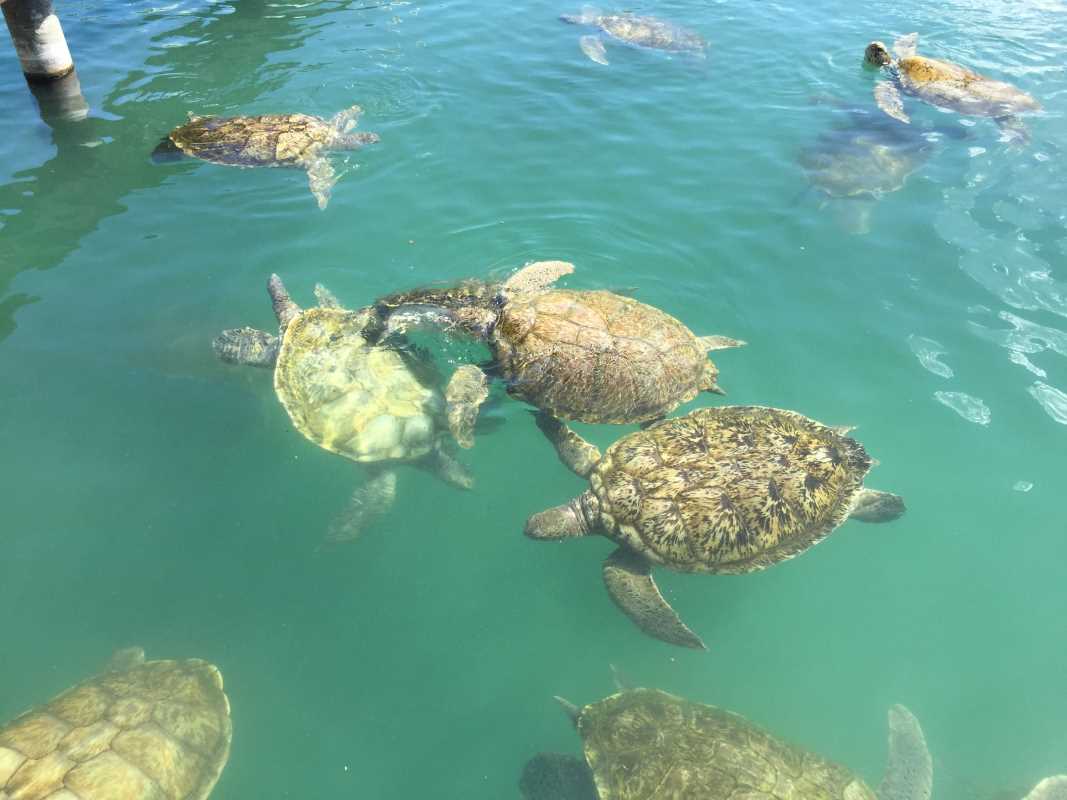Marine conservation is a critical field dedicated to protecting our oceans and the diverse life they harbor. With increasing awareness of environmental issues, the demand for professionals committed to preserving marine ecosystems has never been higher. Pursuing a career in marine conservation not only offers the opportunity to work in some of the most beautiful and dynamic environments on Earth but also provides a chance to make a meaningful impact on the health of our planet.
Exploring Marine Conservation Roles
- Marine Biologist: Researches marine organisms and ecosystems to understand their behavior, genetics, and interactions.
- Conservation Officer: Enforces laws and regulations to protect marine environments and wildlife from harmful activities.
- Environmental Educator: Develops and delivers programs to educate the public and stakeholders about marine conservation issues and solutions.
- Marine Policy Analyst: Working with governments and organizations, analyzing and developing policies to address marine conservation challenges.
- Habitat Restoration Specialist: Focuses on restoring damaged marine habitats, such as coral reefs and mangroves, through various conservation techniques.
- Marine Technician: Supports research and conservation projects by maintaining equipment, collecting samples, and managing data.
- Fisheries Manager: Oversees sustainable fishing practices to ensure the long-term viability of fish populations and marine ecosystems.
Skills and Qualifications Required
- Scientific Research Skills: Ability to design and conduct experiments, collect data, and analyze results to inform conservation strategies.
- Data Analysis: Proficiency in statistical tools and software to interpret complex data sets and draw meaningful conclusions.
- Fieldwork Experience: Practical experience in marine environments, including diving, sampling, and monitoring wildlife.
- Communication Skills: Strong written and verbal communication abilities to share research findings and advocate for conservation initiatives.
- Problem-Solving: Capacity to identify issues, develop innovative solutions, and implement effective conservation measures.
- Educational Paths: A bachelor’s degree in marine biology, environmental science, or a related field is typically required, with many roles favoring advanced degrees such as a master’s or Ph.D.
- Technical Proficiency: Familiarity with Geographic Information Systems (GIS), remote sensing, and other marine research and conservation technologies.
Benefits of a Career in Marine Conservation
A career in marine conservation offers numerous rewards beyond the intrinsic satisfaction of protecting the environment. Professionals in this field often enjoy working in diverse and stunning locations, from tropical coral reefs to the polar seas. The work can be both intellectually stimulating and physically engaging, providing a dynamic and varied day-to-day experience. Marine conservation careers often involve collaboration with a passionate community of scientists, policymakers, and activists, fostering a strong sense of camaraderie and shared purpose.
Contributing to preserving marine ecosystems has far-reaching implications for global biodiversity, climate regulation, and the livelihoods of communities that depend on healthy oceans. The tangible impact of one's work can lead to a deep sense of accomplishment and purpose, knowing that efforts are directly contributing to the sustainability of vital natural resources.
Challenges Faced in the Field
Despite the numerous benefits, a career in marine conservation also presents several challenges. Funding is a persistent issue, as securing grants and financial support for research and conservation projects can be highly competitive and uncertain. This financial instability can affect job security and limit the scope of projects that can be undertaken.
Environmental changes, such as climate change, pollution, and habitat destruction, continually alter marine ecosystems, making it difficult to predict and mitigate their effects. Conservation professionals must remain adaptable and resilient in the face of these unpredictable shifts. Fieldwork can be physically demanding and sometimes hazardous, requiring individuals to work in adverse weather conditions and remote locations.
Steps to Start a Career in Marine Conservation
Embarking on a journey into marine conservation careers involves several strategic steps. Firstly, obtaining a relevant educational background is essential, with degrees in marine biology, environmental science, or related disciplines providing a strong foundation. Participating in internships, volunteer opportunities, and fieldwork projects can offer valuable hands-on experience and help build a professional network.
Developing specialized skills, such as scuba diving certification, GIS proficiency, and statistical analysis, can enhance employability and open doors to more advanced positions. Networking with professionals in the field through conferences, workshops, and online forums can provide insights into emerging trends and potential job openings. Staying informed about the latest research and conservation strategies is crucial for maintaining expertise and contributing effectively to the field.
Future Prospects and Call to Action
The future of marine conservation careers looks promising, with increasing global recognition of the importance of protecting marine ecosystems. As threats like climate change and overfishing intensify, the demand for skilled professionals in this field is expected to grow. Advances in technology and scientific research will continue to create new opportunities for innovation and impact, from developing sustainable practices to restoring critical habitats.
Individuals passionate about marine conservation are encouraged to pursue education and gain experience in the field. By dedicating themselves to preserving the oceans, they can contribute to the well-being of our planet and future generations. Engaging with local and global conservation efforts, advocating for sustainable policies, and continuously expanding their knowledge and skills will position aspiring professionals for success in this vital and rewarding career path.
A career in marine conservation offers a unique blend of adventure, scientific inquiry, and meaningful contribution to environmental sustainability. With the right skills, education, and dedication, individuals can embark on fulfilling careers that make a lasting difference in preserving the world's oceans.







